As part of Hidden Figures Week, organized by Lafayette’s student Women in Computing group, four female scholars in STEM fields discussed their professional experiences and the obstacles they faced. Here are their pointers to help women navigate STEM fields and their advice to male colleagues who could serve as crucial allies.
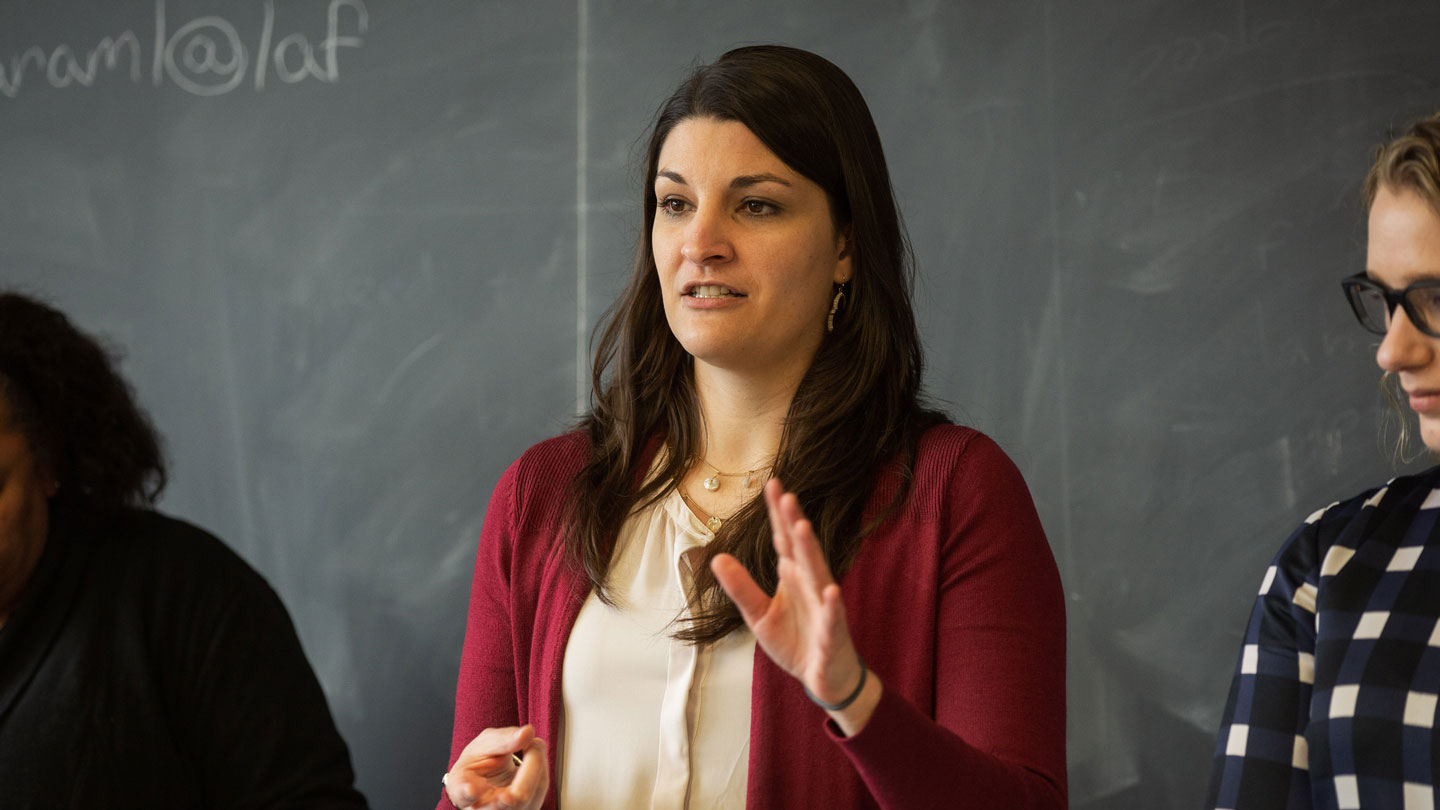
Allison Lewis, assistant professor of math
Believe in Yourself
In graduate school, you might find times when you question your skills. Positive affirmations can help. “It’s important to remember the role models in your lives who believe in you,” says Allison Lewis, assistant professor of math. “It helps as a reminder that you can do it.”
Manage Imposter Syndrome
As an African American woman in math, Chawne Kimber, professor and head of math, was deeply steeped in imposter syndrome—those internalized doubts and fears of being exposed as a fraud. “There are lots of ways of handling those feelings,” says Kimber. “So it’s not if you will question whether you belong, but how you respond when you do.”
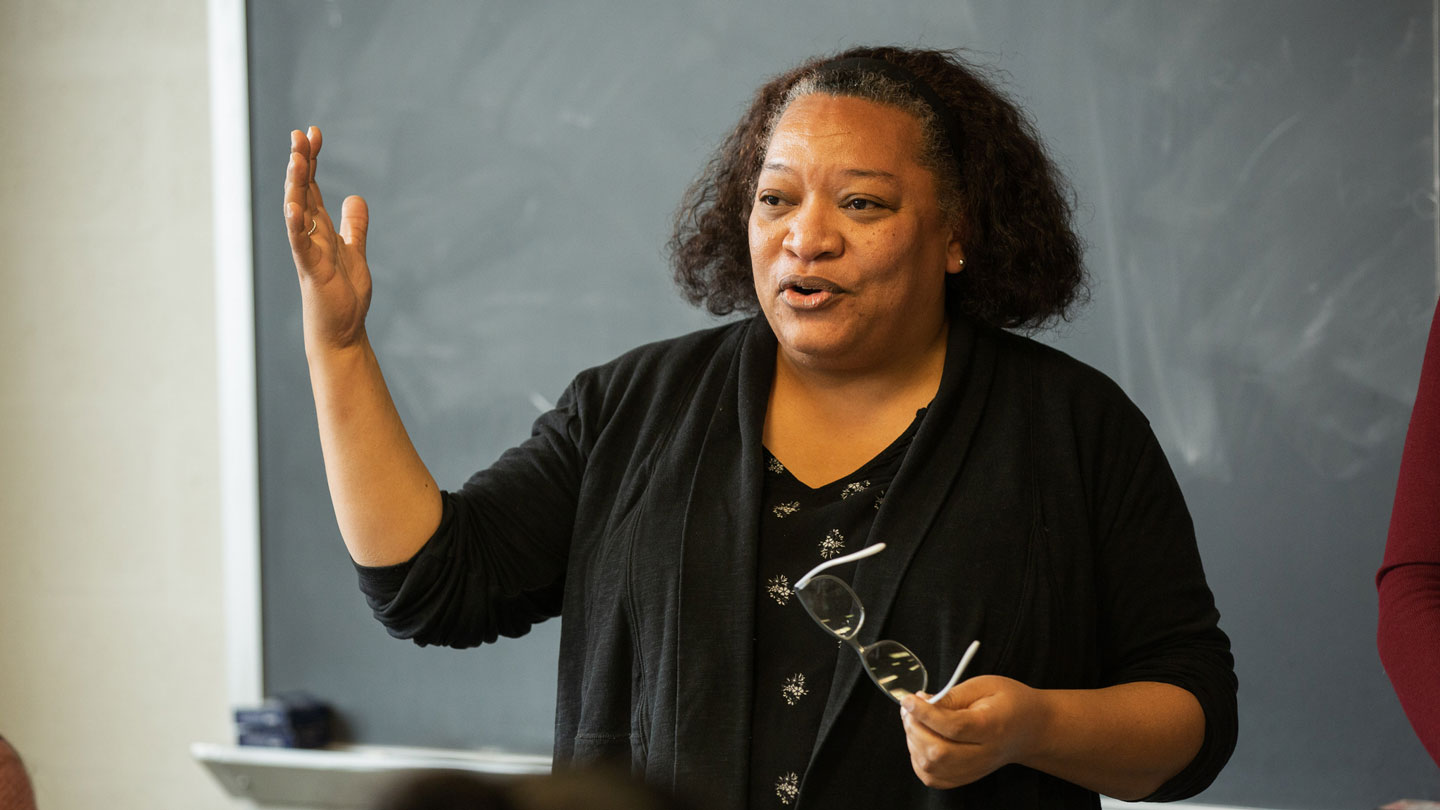
Chawne Kimber, professor and head of math
Watch Social Instincts
Sometimes the social-norming behaviors people use can be obstacles. Lewis recalls a presentation where a male colleague interrupted her over and over. “My natural instinct was to say, ‘Go ahead,’ and let him keep going,” says Lewis. “I don’t think he was aware of what he was doing nor how I was allowing it.”
Little Things Add Up
When behaviors are bad, little things can add up. “I’ve experienced catcalls at conferences, meetings at inappropriate venues, and conversations that go below board,” says Annemarie Exarhos, assistant professor of physics. “While it may be uncomfortable to take a stand, these little things can add up quickly.”
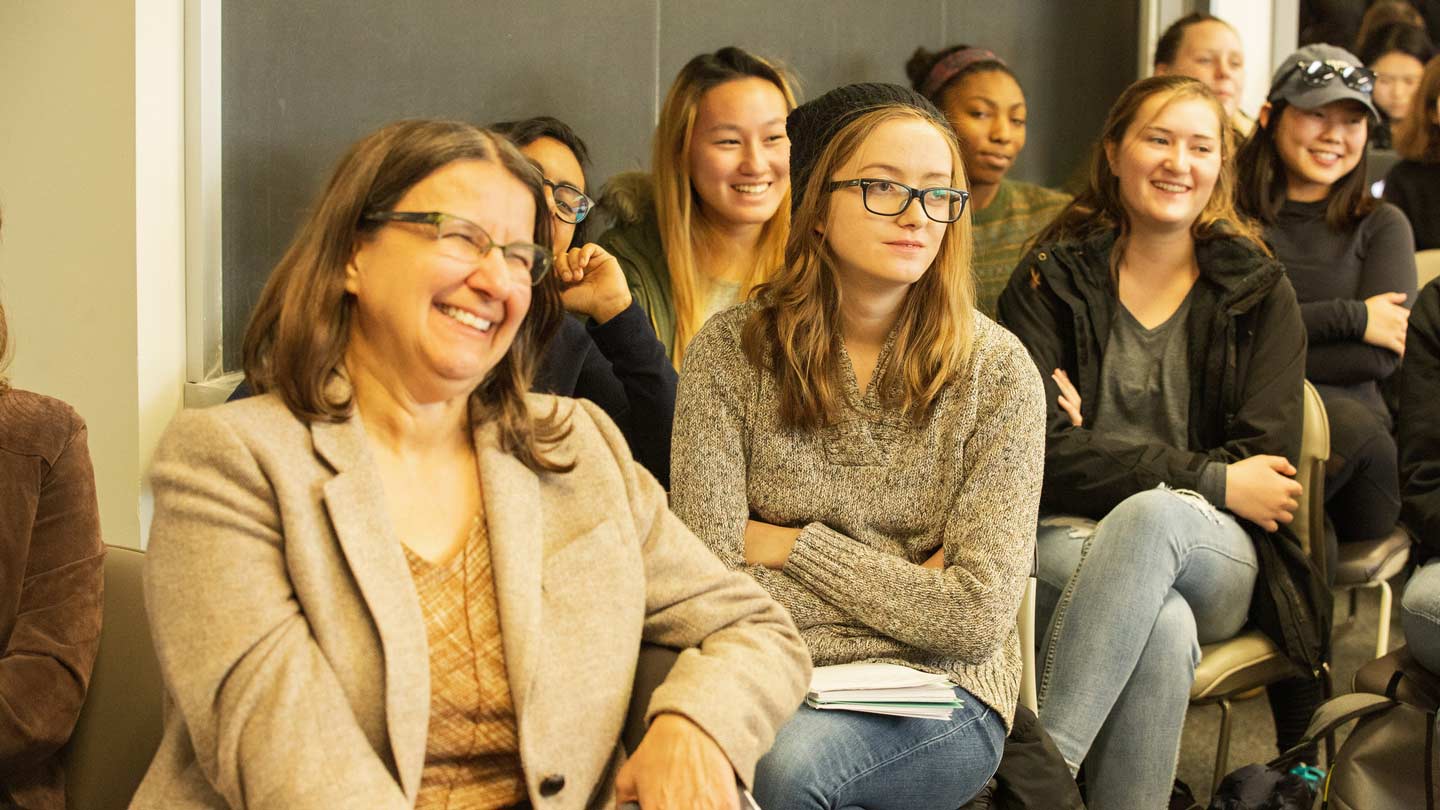
Joann Ordille, assistant professor of computer science (left)
Communicate
“It’s the subtle things that can keep you up at night,” says Lewis. “Where you ask yourself if I should have taken offense to that.” So speaking about those things when they happen can help. “I am an introvert, so I thought a career in computer science would only have me communicate with computers,” says Jia Tao, assistant professor of computer science. “How wrong I was!” Exarhos adds, “Having a conversation can make a situation better.”
Build Allies
When an environment isn’t feeling safe or receptive, one proactive step is building allies. “Find a group of people who are willing to discuss the destructive nature of an attitude, comment, or culture,” says Kimber. “It might not alter behaviors, but you might find more voices who are willing to speak up.”
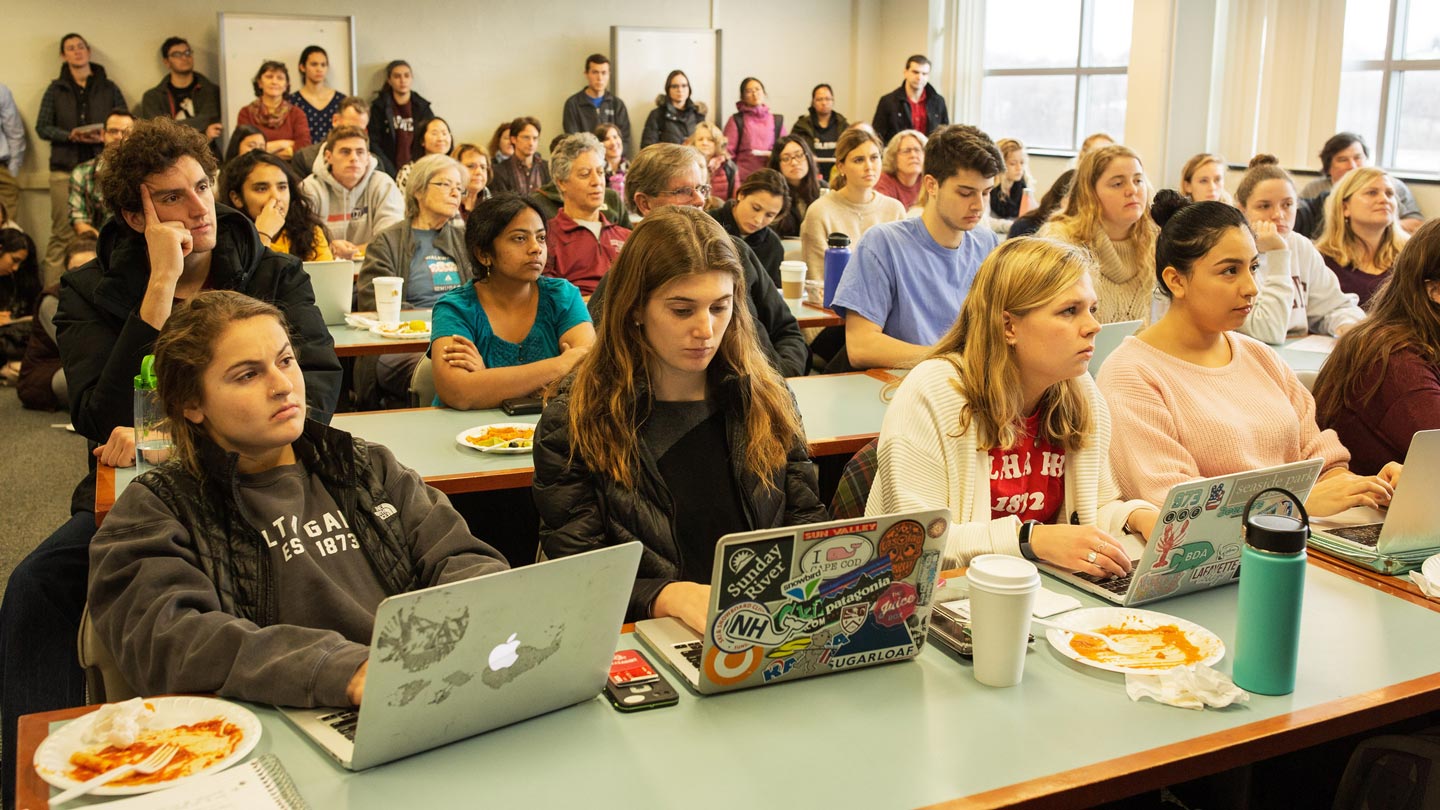 Find a Mentor
Find a Mentor
Finding someone who is further along can help. Exarhos says, “Having a mentor who is at a different phase is as important as the friend in it with you.”
Keep Working
“When you feel like giving up,” says Exarhos, “step into the place that reminds you of what you love. That was the lab for me. In there I could do the coolest things and remember that I loved the work.” Tao agrees, “At conferences followers of my research would speak with my male collaborator and assume I was his student. Luckily, my collaborator would stand up for me and talk about the crucial work I was doing. So don’t spend time on the things that can bring you down and instead do the work. It will make you more resilient. I enjoy what I do; it makes me happy.”
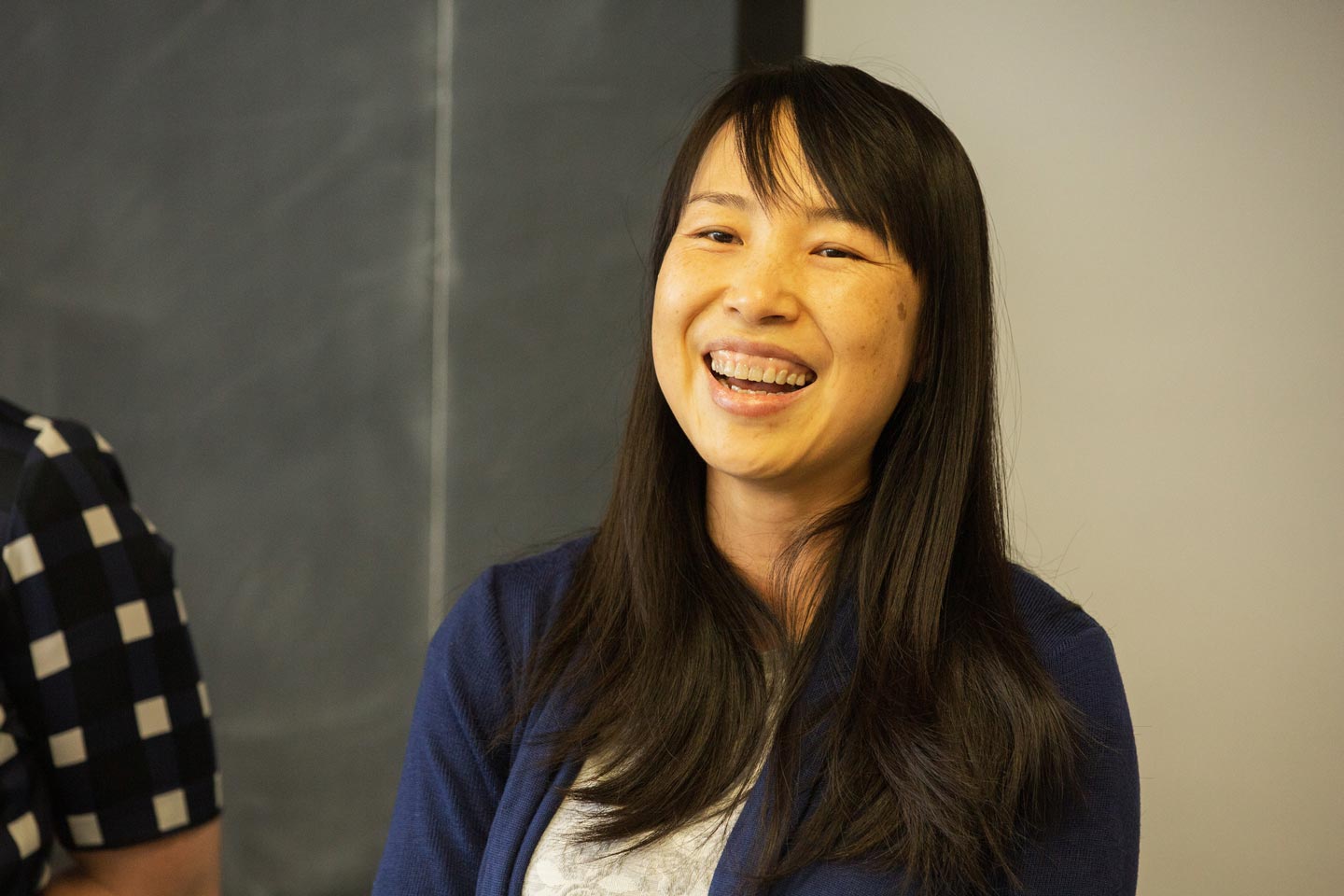
Jia Tao, assistant professor of computer science
Look across Departments
If the work alone is insufficient, then broaden your circle. “If feeling isolated in your department, come together across departments,” says Kimber. “Even if your day-to-day is different, many problems are similar. We have worked across the STEM fields on campus to create allies, and you can feel the difference and see the small changes.”
Support Other Women
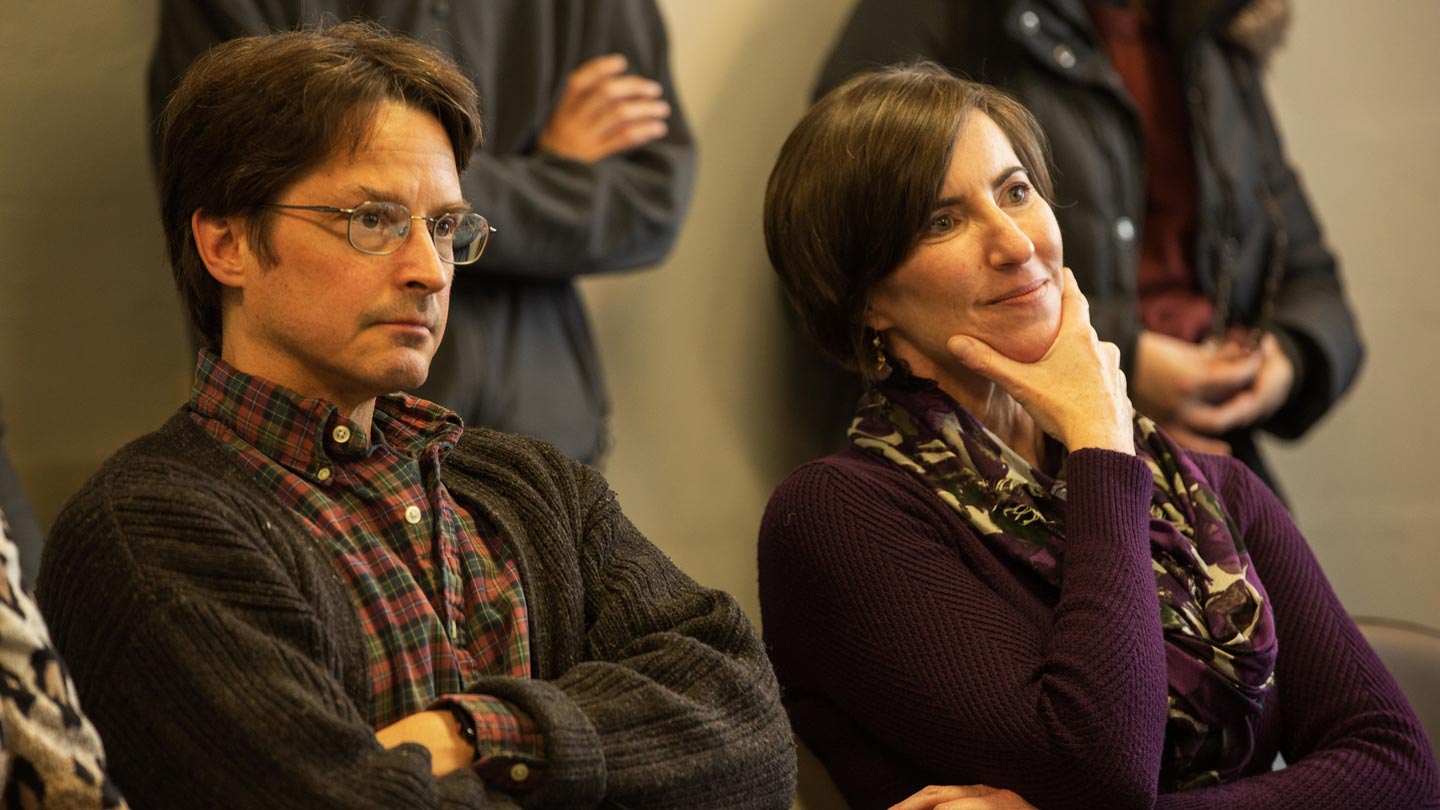
Professors Bob Kurt and Kristen Sanford Bernhardt
“Working from the ground up is important,” says Lewis. “Check in with students and colleagues who are in the field. It can validate what you are experiencing and provide a sounding board.” Other women will understand. “We often have to do three times as much to be seen as half as good,” says Kimber. “It’s not a meritocracy, so we have to be direct and honest with each other. We need grit.”



 Find a Mentor
Find a Mentor
